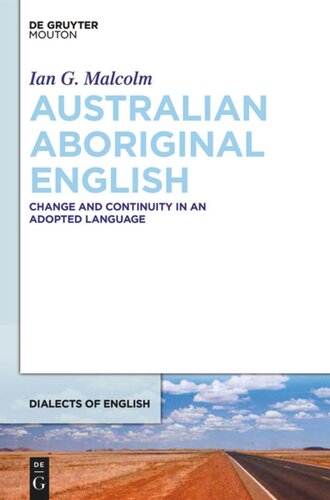

Most ebook files are in PDF format, so you can easily read them using various software such as Foxit Reader or directly on the Google Chrome browser.
Some ebook files are released by publishers in other formats such as .awz, .mobi, .epub, .fb2, etc. You may need to install specific software to read these formats on mobile/PC, such as Calibre.
Please read the tutorial at this link: https://ebookbell.com/faq
We offer FREE conversion to the popular formats you request; however, this may take some time. Therefore, right after payment, please email us, and we will try to provide the service as quickly as possible.
For some exceptional file formats or broken links (if any), please refrain from opening any disputes. Instead, email us first, and we will try to assist within a maximum of 6 hours.
EbookBell Team

4.0
16 reviewsThe dialect of English which has developed in Indigenous speech communities in Australia, while showing some regional and social variation, has features at all levels of linguistic description, which are distinct from those found in Australian English and also is associated with distinctive patterns of conceptualization and speech use. This volume provides, for the first time, a comprehensive description of the dialect with attention to its regional and social variation, the circumstances of its development, its relationships to other varieties and its foundations in the history, conceptual predispositions and speech use conventions of its speakers. Much recent research on the dialect has been motivated by concern for the implications of its use in educational and legal contexts. The volume includes a review of such research and its implications as well as an annotated bibliography of significant contributions to study of the dialect and a number of sample texts.
While Aboriginal English has been the subject of investigation in diverse places for some 60 years there has hitherto been no authoritative text which brings together the findings of this research and its implications. This volume should be of interest to scholars of English dialects as well as to persons interested in deepening their understanding of Indigenous Australian people and ways of providing more adequately for their needs in a society where there is a disconnect between their own dialect and that which prevails generally in the society of which they are a part.